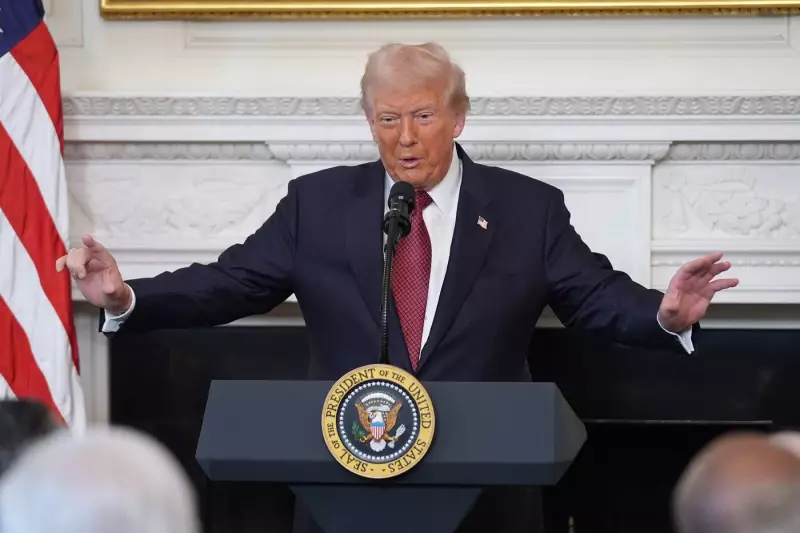
The United States is grappling with an unprecedented political crisis as the partial government shutdown enters record-breaking territory, becoming the longest in American history. The stalemate has left approximately 800,000 federal employees either working without pay or furloughed, creating widespread financial hardship and government service disruptions.
Trump's Bold Senate Rule Demands
Amid the escalating crisis, President Donald Trump has called for radical changes to Senate procedures, specifically demanding the elimination of the filibuster rule. "If we had the filibuster rule changed, we could have a vote quickly," Trump asserted during White House remarks.
The filibuster, a long-standing Senate tradition requiring 60 votes to advance most legislation, has become a central point of contention. Trump argues that removing this procedural hurdle would allow his proposed border wall funding to pass with a simple majority.
Democratic Resistance and Political Standoff
Democratic leaders remain firmly opposed to the President's $5.7 billion border wall funding request. House Speaker Nancy Pelosi and Senate Minority Leader Chuck Schumer have repeatedly stated they will not negotiate border security funding until the government reopens.
The political deadlock has created a perfect storm of consequences:
- Federal workers missing paychecks during holiday season
- Critical government services disrupted nationwide
- National parks accumulating trash and safety hazards
- TSA agents and air traffic controllers working without compensation
- Food stamp and housing assistance programs facing funding shortages
Historical Context and Breaking Records
This shutdown officially surpassed the previous record of 21 days set during the Clinton administration in 1995-1996. The current impasse began on December 22nd when funding expired for approximately one-quarter of federal agencies.
Economic analysts warn that each week of the shutdown could shave 0.1-0.2 percentage points from quarterly economic growth. The longer the standoff continues, the more severe the economic consequences become.
What's Next in the Political Battle?
Both sides appear entrenched in their positions, with no immediate resolution in sight. Senate Majority Leader Mitch McConnell has stated he will not bring legislation to the floor without bipartisan support and presidential approval.
Meanwhile, federal workers and their families face increasing financial pressure, with many turning to food banks and seeking temporary employment. The human cost of the political battle continues to mount as the nation watches Washington's inability to reach a compromise.





